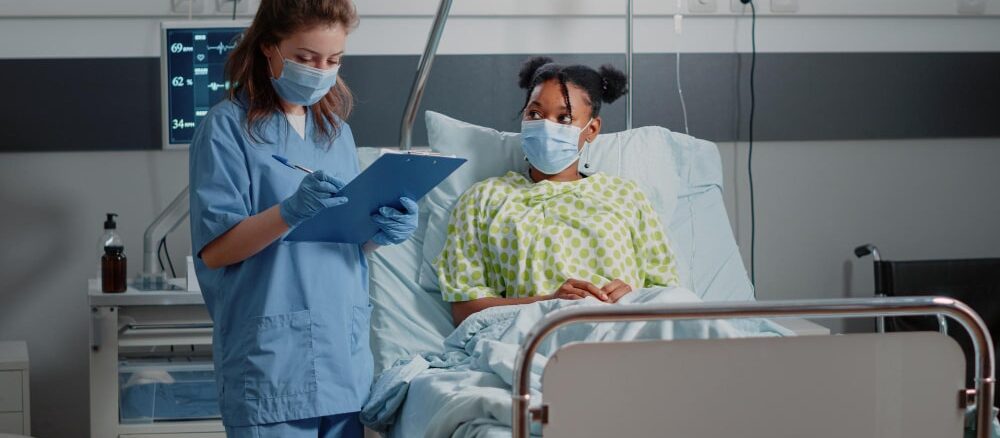In the face of the ongoing COVID-19 pandemic, many individuals are unsure of the best course of action if they suspect they have contracted the virus. “Can I go to urgent care if I have COVID?” is a valid concern that merits thoughtful consideration. In this comprehensive blog, we will delve into the intricacies of seeking urgent care for COVID-19, exploring the testing process, treatment options, safety protocols, and other essential factors to help you make informed decisions regarding your health during these challenging times.
The Role of Urgent Care in Managing COVID-19
Urgent care facilities have played a vital role in the battle against COVID-19. These medical centers are equipped to handle various acute medical conditions, including potential COVID-19 cases. The primary advantage of visiting an urgent care center is the convenience of walk-in services, which reduces the burden on hospital emergency rooms while ensuring timely medical attention.
Identifying COVID-19 Symptoms
Before deciding to visit an urgent care facility for Covid treatment, it is crucial to recognize common COVID-19 symptoms. These symptoms may include fever, cough, shortness of breath, loss of taste or smell, fatigue, body aches, sore throat, and congestion. It is important to note that symptoms can vary from person to person, ranging from mild to severe or even asymptomatic.
COVID-19 Testing at Urgent Care Centers
Many urgent care facilities now offer on-site COVID-19 testing to help identify and manage potential cases. There are primarily two types of tests available at these centers: molecular PCR tests and rapid antigen tests. PCR tests are considered more accurate but may take longer to produce results, typically within 24 to 48 hours. In contrast, antigen tests provide quicker results (usually within 15-30 minutes), but they may have a slightly higher chance of false negatives. Urgent care centers follow strict testing protocols and guidelines issued by health authorities to ensure accurate results and minimize the risk of transmission.
When to Consider Urgent Care for COVID-19
Visiting an urgent care facility for COVID-19 evaluation is recommended under certain circumstances:
Mild to Moderate Symptoms
Urgent care can be a suitable option if you experience mild to moderate symptoms and do not require emergency medical attention. It is crucial to avoid visiting crowded places and public transport while seeking medical care to reduce potential transmission to others.
Exposure to Confirmed Cases
If you have been in close contact with a confirmed COVID-19 case, even if you are asymptomatic, getting tested at an urgent care center is a responsible step to identify any potential infection and prevent further spread.
Difficulty Accessing Primary Care
In some cases, individuals may face challenges in promptly accessing their primary care providers. Urgent care facilities offer an accessible alternative for COVID-19 testing and evaluation.
Safety Measures at Urgent Care Centers
Urgent care facilities prioritize safety measures to protect patients and staff from potential COVID-19 transmission. These measures often include:
Mask Mandates
Most urgent care centers require masks for all visitors, staff, and healthcare providers to reduce the risk of airborne transmission.
Social Distancing
Waiting areas are arranged to facilitate social distancing, and the number of people allowed in the facility may be limited to prevent crowding.
Enhanced Cleaning and Disinfection
Frequent disinfection of high-touch surfaces and equipment is carried out to maintain a clean and safe environment
Telemedicine Options
Some urgent care centers offer telemedicine consultations, allowing patients to seek medical advice remotely, reducing in-person contact.
Treatment Options for COVID-19 at Urgent Care
For patients diagnosed with COVID-19 at an urgent care center, the medical staff will discuss the appropriate treatment plan based on the severity of symptoms and underlying health conditions. In most cases, treatment will focus on managing symptoms, ensuring hydration, and monitoring oxygen levels. If necessary, patients may be referred to a hospital for advanced care.
When to Seek Emergency Medical Attention
Recognizing severe COVID-19 symptoms that warrant immediate emergency medical attention is essential. These symptoms may include severe difficulty breathing, persistent chest pain, confusion, bluish lips or face, and inability to stay awake. In such situations, calling emergency services (911) is critical for timely intervention.
Final Words
The COVID-19 pandemic has presented unprecedented challenges for healthcare systems worldwide. When considering whether to go to urgent care if you suspect you have COVID-19, assessing your symptoms, potential exposure and the availability of testing and treatment options is crucial. Urgent care facilities offer a valuable resource for COVID-19 evaluation, providing accessible and timely care while following strict safety protocols to protect patients and healthcare providers. Remember to stay informed, prioritize safety, and adhere to public health guidelines to help combat the spread of COVID-19 effectively.

